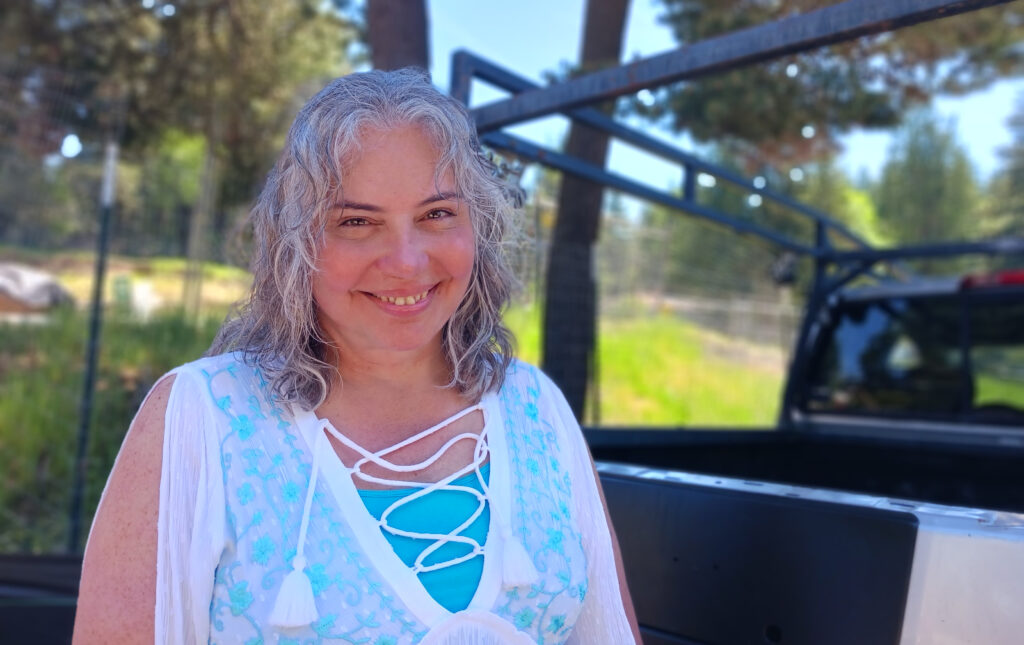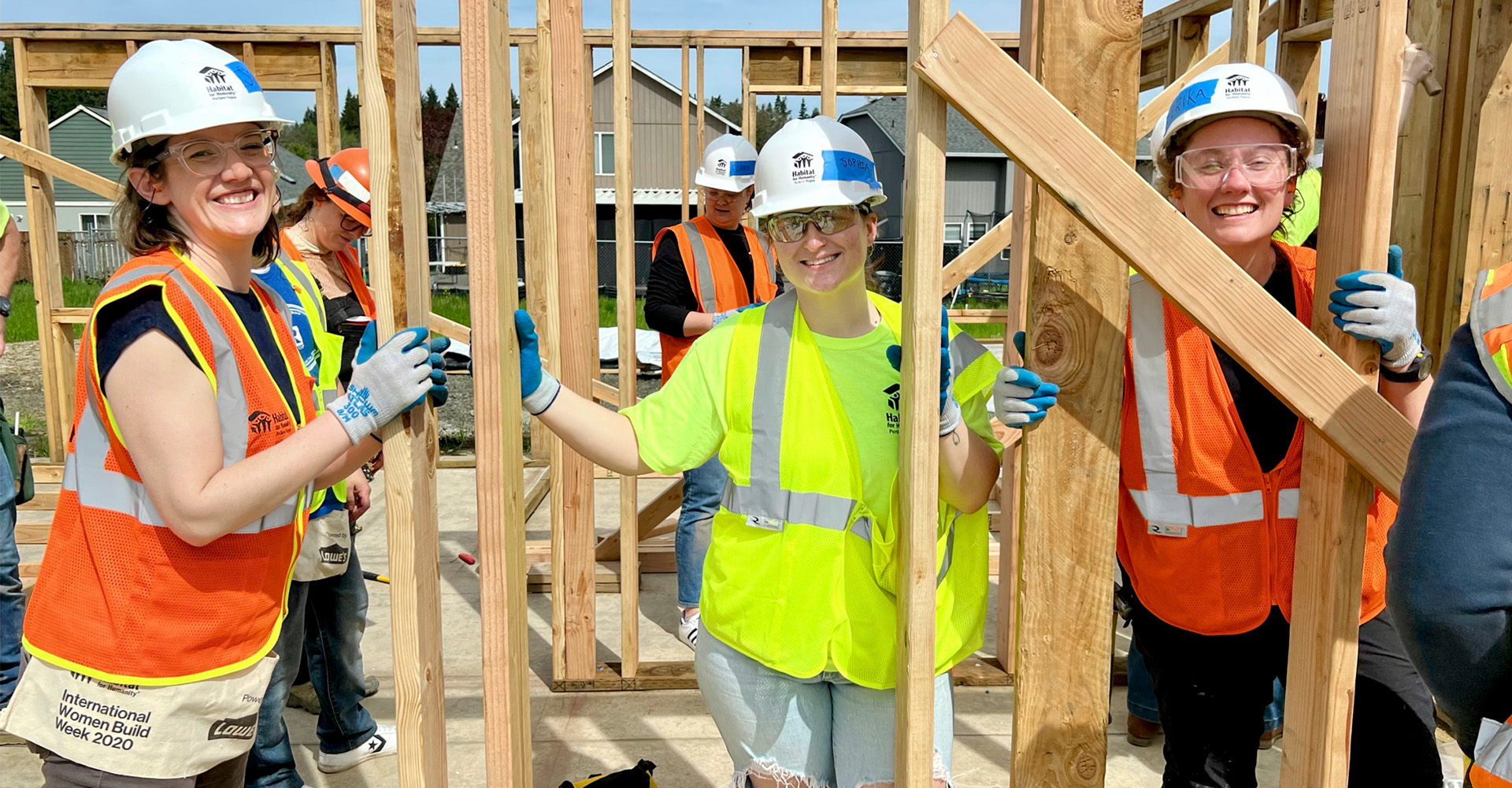
The story of Greta Brown begins in Texas. It’s the state she was born and raised in, and a place she still loves deeply, even though she felt she had to leave.
She grew up steeped in that state’s rich history, its diverse regions and indigenous culture. She’ll tell you about its independent power grid and industrial base (precautions during World War II in the event of enemy attacks on either coasts), its liberal atmosphere, and its culture of independence, which she embraced.
But in recent decades, she said, that atmosphere had shifted, politically and socially. The state she never planned on leaving was leaving her in some way. It was no longer the place she grew up in. “I thought it was time for me to get out. And I think, in hindsight, I did the right thing.”
About a year ago, Greta arrived in Portland and put her decades of construction and building experience to work building homes with Habitat for Humanity Portland Region. Today she is the site superintendent for two Habitat communities: Twenty Fifth Terrace and Gooseberry Trails, both in Southwest Portland. The site superintendent oversees the operations at the build sites and supervises the work of contractors and other staff.
It’s a career that combines her professional expertise with what she describes as a calling to build homes for people who need them. The 2008 housing market crash brought the need for affordable housing and homes into stark focus for Greta. Seeing families lose homes and move in with relatives, she branched into building accessible dwelling units, or ADUs, to accommodate the growing numbers of cohabitating generations.
“Because people were being priced out of homes – and they still are,” Greta said. “We know that there’s still a housing crisis. And a homeless crisis. There are families out there that are living in cars and living in trailers. They’re destitute because they have no place to go.”
By now, Greta had established a successful career and had a family of her own, but the issue of housing instability tapped deep into her youth.
“We were very poor,” Greta said, recalling her youth. “We didn’t have much money, so everything was a struggle.”
The family moved frequently, sometimes within months of finding an apartment, interspersed with periods of homelessness, the first when she was 7 years old.
“I had to live in a tent with my family at a lake, and I did that for three years,” she recalled.
Housing instability and uncertainty continued for many years, and every move meant a new school, never settling in any location long enough to get attached to people or things. She got a manufacturing job while in high school to be able to buy clothes.
“The other thing is, I’m transgender, but I never realized that I was different than anyone else,” she said. “Because you can’t find a friend, because you’re not somewhere around other people long enough to know how other people are.”
By the time she was in her 20s, she wanted to stop working with her hands and start working with her mind, she said. On the advice of her uncle, Greta went into construction. She married, started a family, and ran a successful homebuilding business for 25 years. She came out as transgender about 10 years ago.
“I identify as a woman, but it’s taken me a long time to get there, because for over 45 years I was a man,” said Greta, now 55.
When Greta decided to move to the Northwest, she had only a utopian image of Portland. She had heard about Bigfoot, but otherwise only knew that its political climate suited her better than the South. In no time the trees, the mountains, and the ocean felt like home. A few months later, her wife moved out to Portland. The couple recently celebrated 34 years together.
“I absolutely love this area,” she said smiling, looking up at the towering Douglas firs. “I think it’s just dreamy.”
Sitting in her mobile office – a mammoth Nissan Titan – Greta looks out over the progress underway at Twenty Fifth Terrace, one of Habitat’s newest communities in Southwest Portland. When finished, Twenty Fifth Terrace will provide 17 family-sized homes, including ADA accessible homes. Gooseberry Trails, which Greta also supervises, will provide 52 new homes when completed.
“That’s why I came here, to give back,” she said. “I like giving back.”
It’s been a long journey from her early days in Texas, but she’s in the right place at the right time: helping build homes for people who need them. And Greta encourages anyone, regardless of gender, to explore a career in construction as well.
“I would suggest to women that they get out here and they do it because it is one of the most rewarding things that you can do. And it’s not something that’s gender specific,” she said. “I love this mission,” she adds. “I’m here because I want to be. It’s near and dear to my heart.”
And from where she’s sitting, the views just keep getting better.
“It’s rewarding in itself to see the job come to fruition, but working for Habitat has a different take on it,” she said. “I like seeing volunteers participate and I love seeing homeowners take possession of something — and it’s theirs. It means a lot to me to see them get a home. It is a privilege.”

